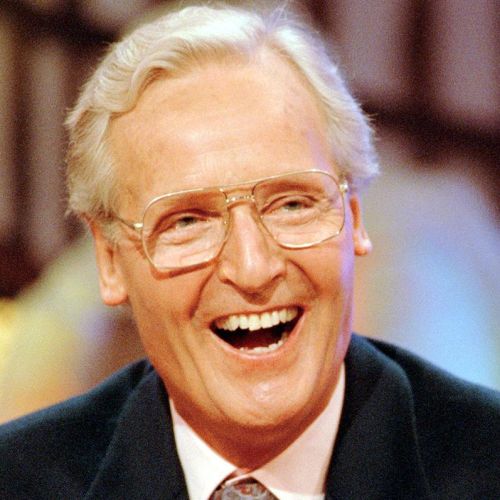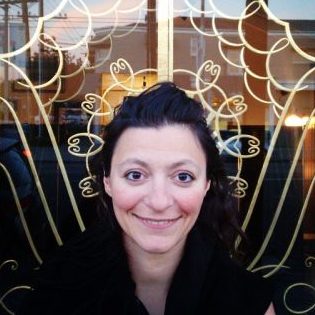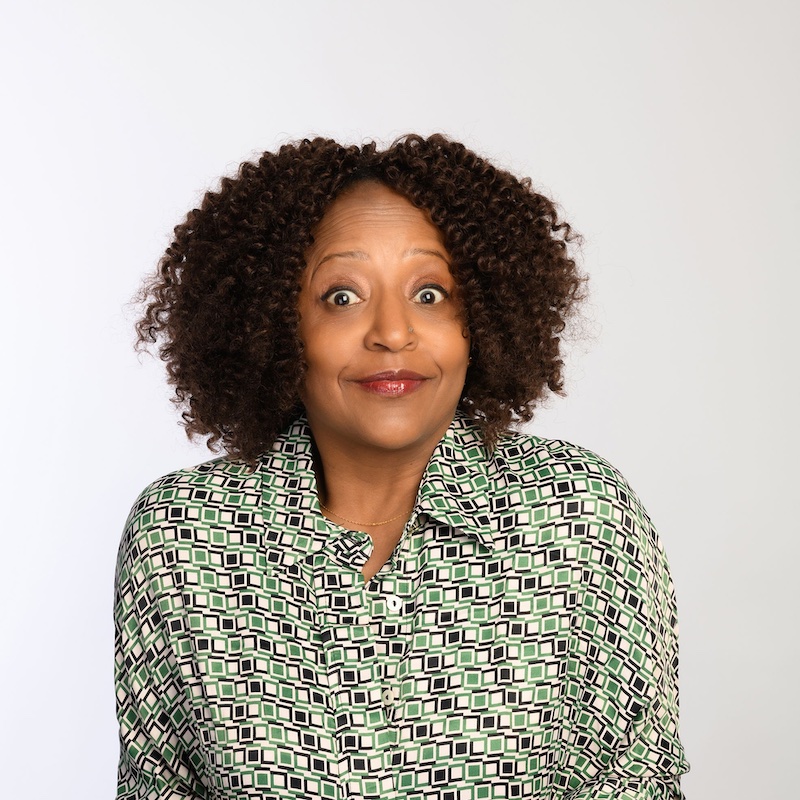Martin Walker talks to Nicholas Parsons, someone who needs no introduction. They discuss Just a Minute, stand-up comedy and his acting roles in The Comic Strip Presents and Doctor Who. But they start by talking about the Edinburgh Festival Fringe.
“I’m back doing my chat show at The Pleasance for the fourteenth year. My wife thinks I’m a little bit mad because it’s very demanding.
“It’s called the Nicholas Parsons Happy Hour. I do a bit of stand-up comedy to begin with, have some fun with the audience, then bring on my guests…
“Before I meet them onstage I go out and see the shows that my guests are in so we can have an informed and witty chat about what they are up to.
“Nearly all the top people today who started modestly up in Edinburgh on the Fringe have at some time been guests on my show. I mean, Michael McIntyre when he first began came on. He was lovely. John Bishop came on and he was then still a business man. He had a modest little show and I thought he was very unusual and very original. And now he’s a big name. Jason Byrne is one of my favourites – he comes on every year. Jason comes on because he’s a chum. He doesn’t need to plug his show, it’s always sold out”.
And you do a bit stand-up during your chat show
“A bit of stand-up? I do a lot of stand-up!”
At least you can sit down for the rest of the show when you’re talking with your guests.
“No. I squat. Then stand up. Illustrate the things then squat!”
But people say it’s a sign of status to come on your show.
“I’d like to think so because, I mean, after fourteen successive years the business is still very good. I am packed out every night.”
I have been to your show a couple of times over the years. It’s a lovely atmosphere.
“You should’ve come up afterwards and said hello.”
Maybe I was a little star struck. You have been on my TV and radio for my whole life.
“I don’t know how I’ve survived for so long.”
Is it right that you’re ninety years old now?
“Yes, that’s right.”
And still working.
“But you see, the brain is considerably younger than my years. I have to admit that I do feel my age in my legs sometimes.
“I’m doing a big show at the St James’ Theatre at the moment. It’s only three performances but I’m a bit nervous of getting into a production that would run for eight performances a week and have to go on tour as well.
“The thing is, it is a two hour show and with an interval and I sometimes sign books afterwards, it’s quite demanding so next day I feel a bit jaded.
“Edinburgh is so demanding. It’s every day. It’s relentless. But I have a little secret… I find that I can catnap very easily and every afternoon no matter who wants me, I am back in the flat in that bed and I sleep solidly for an hour and a half at least. Then I have about three alarm clocks to wake me up just in case. Then the taxi comes at ten to five, takes me up to the Pleasance and I’m there at five o’clock and I’m on stage at ten past five and that little sleep has completely recharged the batteries and I’m ready to go.”
That’s a nice wee tip all performers. Well of course a lot of people in Edinburgh like to go out and socialise or network, have a drink and so on, don’t they?
“I do that as well. I do that after the show.
“I have a lot more energy than most ninety year olds and fortunately the brain is very active and I’m a great believer that the more you use your grey matter, your brain, the younger you remain. You should really keep using it.”
You’re absolutely right about that. It’s a muscle isn’t it, the brain, just like any other
“In a way yes. But you can keep it more active better than the other muscles in your body. So I’m doing a show every day and while I’m up there, two editions of Just a Minute and my book launch.”
I love Just a Minute. It’s been going a very long time.
“Over the last six months I’ve been writing a book called Welcome to Just a Minute which will be launched at the Edinburgh Book Festival while I’m up there. It is a history of Just a Minute but with all the anecdotes and the stories and the gossip and the extracts and so forth.
“I’ve been with it for forty-seven years which is unbelievable. I did the original pilot and haven’t missed a show. I’ve done almost 900 performances now. Over the years the show has slowly evolved. It was a bit more staid and traditional when it started. In fact, Clement Freud got a bit tense and wanted to keep it that way and was forever nagging me to try and stay in the old format. But I have slowly tweaked it so it’s moved forward.
“We have a nucleus of regulars the producer uses because we endeavour never to have the same four in any show which keeps it much fresher and if you have a new person who’s not done it before, you make sure they’re surrounded by three regular players.
“And there’s all kinds of little tweaks that we’ve done and as I say in the book, if it’s going to achieve longevity you’ve got to forever think about it, concentrate on it, find little ways to polish it, little nuances, here and there, introduce little ideas and gimmicks and that’s what I take credit for – but any professional would do the same.”
You got picked on an awful lot in those early shows. Do you think that your guests are perhaps a little kinder to you now?
“Well no. The ones who are kind are kind. Paul Merton is a very good friend. And Paul has a wonderful comic brain. Paul has this great gift to say something outrageous or facetious about me, in other words, pull my leg, and the audience will laugh because they know there’s no hidden agenda behind it. And I’ve worked as a foil to many comedians in my time, and I know how to take it and the audience are there to laugh and see me take it in good heart – and even come back and gag about it. If someone does it with an edge it can fall flat as a pancake.”
It backfires on them. But often you set them up don’t you?
“Oh, of course I do! I can throw out a line to Paul, because I know how he works and he often comes back with an amazing response.”
I’ve read your first biography, The Straight Man. It has some terrific stories of how you got started. And you talk about and the other comics and entertainers who were around at the time. How do you think the business has changed since then?
“It has changed – it’s evolved and you have to evolve with it. One of the reasons is that television has got to such a powerful position. People have got these huge screens and they have so many programmes which they can tune into.
“New programmes eat up material at such a demanding rate that the result is that performers, particularly comedians are forever searching for new ways to amuse and entertain the public.
“And in the past comics would rely on jokes and gags and live on them and go round the music halls telling exactly the same stories for a year or two. Now you say it once and it’s gone. People have heard it. So what they’re doing is drawing on their own private life and private experience and making it much more personal and anecdotal. And if you look at Live at the Apollo and other shows where you have a succession of stand-up comedians coming on, almost all the comedians are relating their comedy to their life.”
If you’re relaxing at home, or something, and you fancy listening to some comedy and perhaps put on a CD or whatever, who would you listen to?
“I don’t have time to put on CDs. If there’s a comedy show on and I’m free, I’ll go watch it because I’m fascinated by comedy.
“I’ve said this many times before. If someone watches a comedian and they like them, they say, ‘oh he’s brilliant’. Conversely another comic may be quite a clever comedian but they don’t enjoy the jokes – they say ‘oh, he’s rubbish’. The public are entitled to say ‘oh, he’s marvellous’ or ‘he’s rubbish’, but I look at them all. Some will make me laugh more than others. But I’m fascinated to see how they’re working and the direction from which they’re coming.”
Do you have favourites?
“Well yes and no. John Bishop I like. And I also enjoy the situation comedy, Miranda.”
“Miranda came on my show when she was a very raw person doing her own stand-up and I predicted then that she would become a big star. I could see her potential, she was original, she was different. And she is exploring the world of broad comedy which is descended, if you want to trace the history of comedy which fascinates me, down through Buster Keaton and Charlie Chaplin and Laurel and Hardy and so forth. She’s in that genre, as is Mrs Brown. And then there’s others have come down the American style of gags and jokes. Different styles of comedy, different ways of making people laugh.”
Of course you got involved with alternative comedy as well didn’t you, with the Comic Strip?
“Absolutely. I loved it. I loved working with the late Rik Mayall and Ade Edmondston. One of the best shows they ever did was a show for the Comic Strip called Mr Jolly Lives Next Door.”
Fantastic show – one of my favourite Comic Strip episodes.
“It was so successful it spawned Mr Jolly fanclubs and I get letters from them still.”
Do you still get Doctor Who fans contacting you as well?
“I do, because Doctor Who fans are the same. But that was me being an actor.”
That was a straight performance.
“Yes and a very serious role. I was thrilled to be cast because I said to the producer he really must have realised that before I did a lot of stand-up and presenting and so forth I was an actor in plays and things. He actually said ‘no, I didn’t realise that… I happened to see you in pantomime in Bromley playing a dame!’. That’s a really creative director who can jump from seeing someone as a dame and cast them as a very serious vicar.”
The story was The Curse of Fenwick. One of the classics.
“I jump at doing anything different. I’ve just been asked to host this programme called The Best of British Musicals and we tried it out at the London Theatre Hippodrome a few weeks ago and now they’ve re-engaged it and we’re doing it at the St James Theatre on the 4th and 5th of July.
“I was phoned up the other day about a holiday programme – they take you back to where you’ve had a memorable holiday and things like that. I’m up for anything that’s different – particularly if it’s unusual or offbeat.
“I see myself as an all-rounder. I started out as a mimic – I was a Carroll Levis discovery doing impersonations and I still do mimic people. Then I moved to becoming a serious actor in plays and so forth and then I did a lot of cabaret. After that I was asked to host a show called Sale of the Century so they agents thought I was a quiz show host and stopped casting me in plays.”
How long did Sale of the Century go on for Nick?
“A long time. It was incredibly successful.”
Which brings back to Just a Minute.
“The irony and this is one of the great stories of show business, the Just a Minute pilot was really not very good. In fact the BBC didn’t want it. They were not going to commission a series. They could never see it working. Until you get a very clever young director called David Hatch who finished up as Head of Broadcasting. David saw the potential and pleaded with them to give him a series and only because they wanted to keep David on staff, not because they wanted the show, came the first series. And from those humble beginnings… it wasn’t good, the pilot wasn’t good, the first series wasn’t very good, but slowly it built and built and now it’s incredible.”
It’s more popular than ever. Would the late Ian Messiter like the show today?
“Oh yes. He was a great innovator. Any little tweaks we’ve put in he would certainly have approved them. “
Because he used to write the questions didn’t he?
“Well yes – it was his show.”
So he would pass you the wee card? Who writes the questions now? Is it the producer, or yourself?
“Well I contribute some of them. It’s the Messiter estate – his son Malcolm – he runs the Messiter estate and it’s in his contract to supply them. But occasionally I might put one forward but I don’t take any credit for that. It’s only because one knows the kinds of subject that which will spark people off. Because I’ve been doing it so long I know the way to do it. But Ian was very creative in that respect.”
One last question. I know you are busy Nicholas… Imagine that the BBC are taking a new direction. Michael McIntyre has moved on and they want to broadcast prime time the Nicholas Parsons Comedy Roadshow. Who would be your guests?
“That’s an impossible question without warning…”
Off the top of your head…
“Well I love all kinds of comedy. I mean, Tommy Cooper for his bizarre, surreal comedy, Spike Milligan because he was off the wall and incredibly talented and creative, Harry Secombe because he was so warm and lovely, Jimmy Edwards because he was so abrasive, difficult and distant, and then we come to the modern generation Paul Merton of whom I’m a huge admirer because he’s very different and utterly driven, Julian Clary who comes over and who’s commercialised camp in such a way that it’s brilliant and I’ve already mentioned Michael McIntyre and Miranda – there are so many.”
Interesting you mentioned Julian Clary because it comes across on the radio that there’s a special piece of banter between the two of you when you are together.
“I always think that Julian is so clever because in his stage show he’s really quite outrageous and yet he holds himself back and is quite circumspect. But he does it in such a way that you can read all sort of double entendres into what he’s saying. People who are not quite so switched on might not get them all but those who are…. that’s brilliant comic timing. It’s unbelievable.
“Then you get other people who are not comedians but who are great raconteurs. Giles Brandreth who’s quite incredible with his breadth of knowledge and Stephen Fry who’s probably one of the most outstanding performers but he’s not what you’d call a comedian. But he’s a polymath isn’t he? He’s wonderful. Then there’s Jason Byrne who I think is a wonderful man. I’d mention Jim Owen and others. They’re all different.”
And big stars. You know the biggest stars like Graham Norton come on the show still.
“I said if I went ahead and did it off the top of my head without writing it down I’d leave somebody out. There’s Graham Norton who I’ve known since he first started. A genius at what he does.”
“Sue Perkins and Jenny Eclair and others like that and they’re all in their own way quite exceptional. And you think of female comedians like Dawn French who’s lovely and Victoria Wood who’s a brilliant comedienne. Sometimes they don’t want to be called comediennes now, they want to be all called comedians – they want to have one noun to embrace both sexes.
“Again, thinking, I’ve missed out someone who is the master joker – and that is Ken Dodd. He was a genius – the way he evolved and kept going. It’s amazing to do that. I’m looking at the wall in the little office here that I have at home and I see my dear little friend Norman Wisdom there. He was a clown. But Norman, if you like clowns, was incredible.”
Again another tradition of comedy isn’t it. We could talk all day about comedy and the traditions of comedy.
“And another one, an old mate and a lovely man, Kenneth Williams. Coming from a different direction. But he was another one who was just naturally a funny man. A troubled man. And of course my dear friend Benny Hill. I mean Benny was a lovely, lovely person to work with. He’s not everybody’s cup of tea but he had the most engaging personality. People loved Benny. His shows are still shown round the world but not in this country any more. In choosing him, you don’t choose him to the exclusion of the others. They’re all different and they all have something about their personality which is unique which makes them a great entertainer and a great performer. And part of it is personality so the ones I mentioned just recently like Benny – Benny had a lovable personality and that’s why he worked so well because people warmed to him and they warmed to Kenneth Williams and warmed to little Norman Wisdom. It’s terribly important to have a warm personality. If you have an abrasive personality you have to be much more clever. If you take someone like Jack Dee – he’s a brilliant comedian – but I think he has to be more brilliant than most because doesn’t make you want to engage with his personality. It’s a fascinating world, the world of comedy and I’ve been in it all my life and I fit it and analyse it and think about it a lot and it keeps me going.”
Thank you for your time Nicholas. Fascinating to hear your views on comedy. I’m looking forward to the Just a Minute book.
“It’s called Welcome to Just a Minute which is the opening phrase I use in the radio show.
“And as the minute waltz fades away on this occasion, Martin I really will have to say goodbye for now.”






